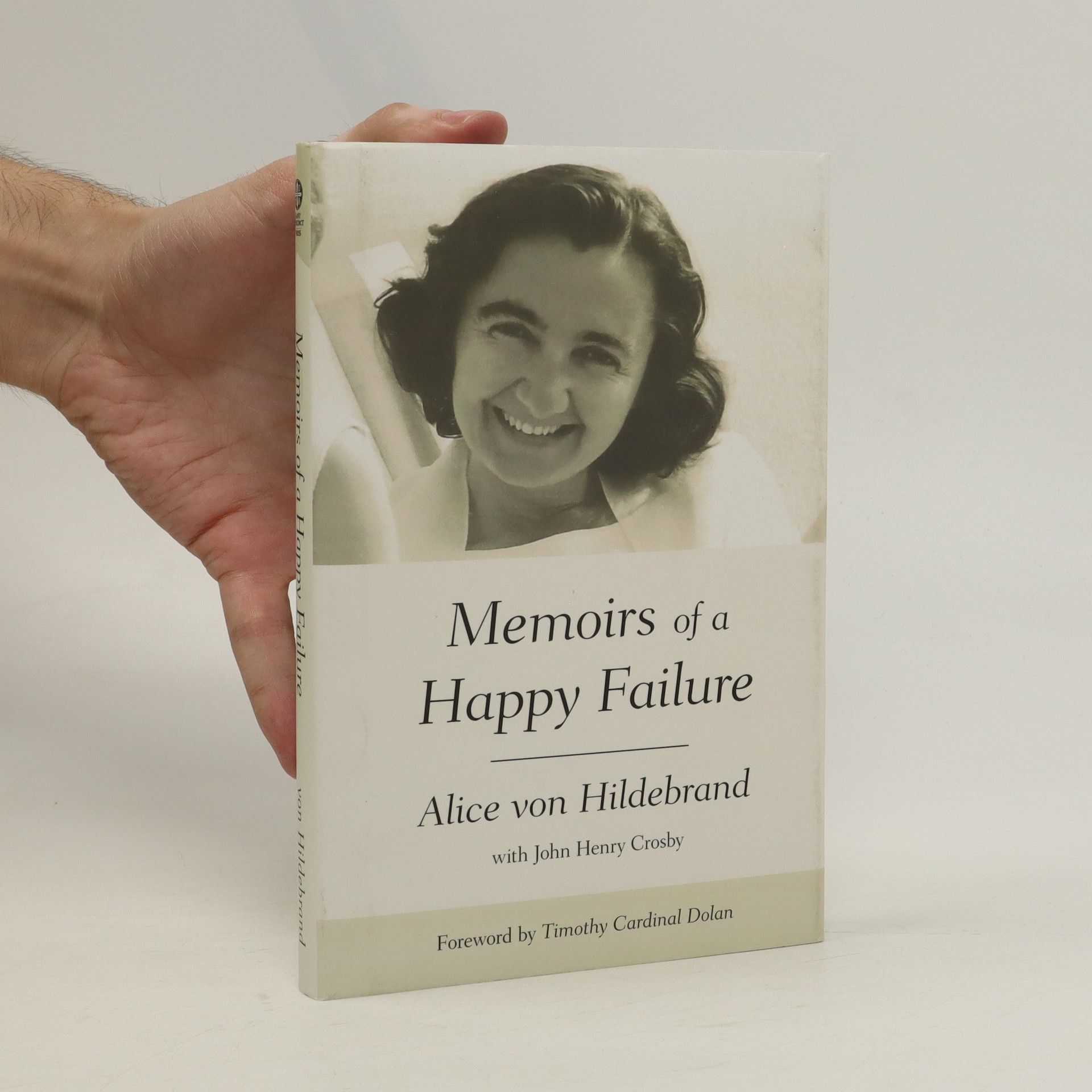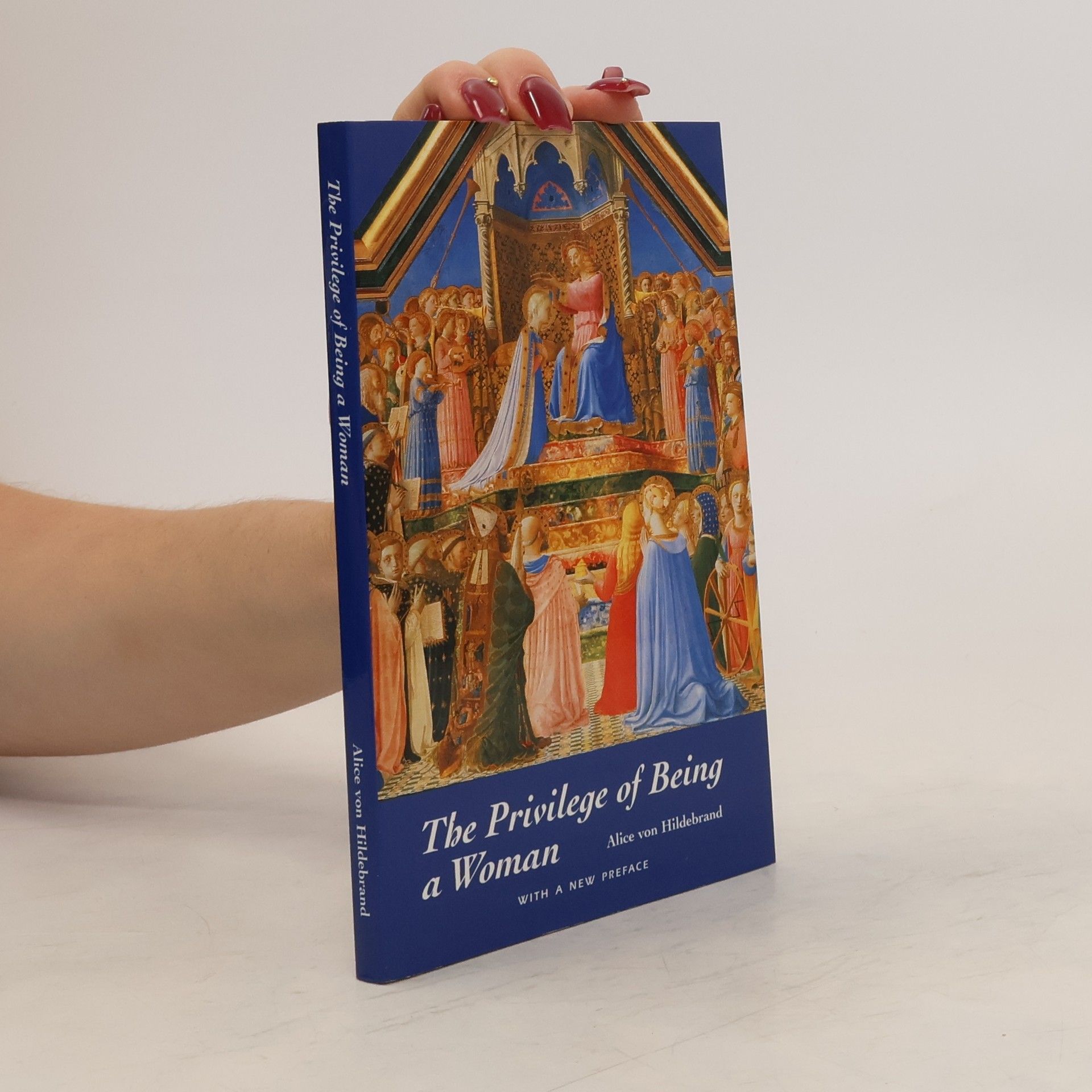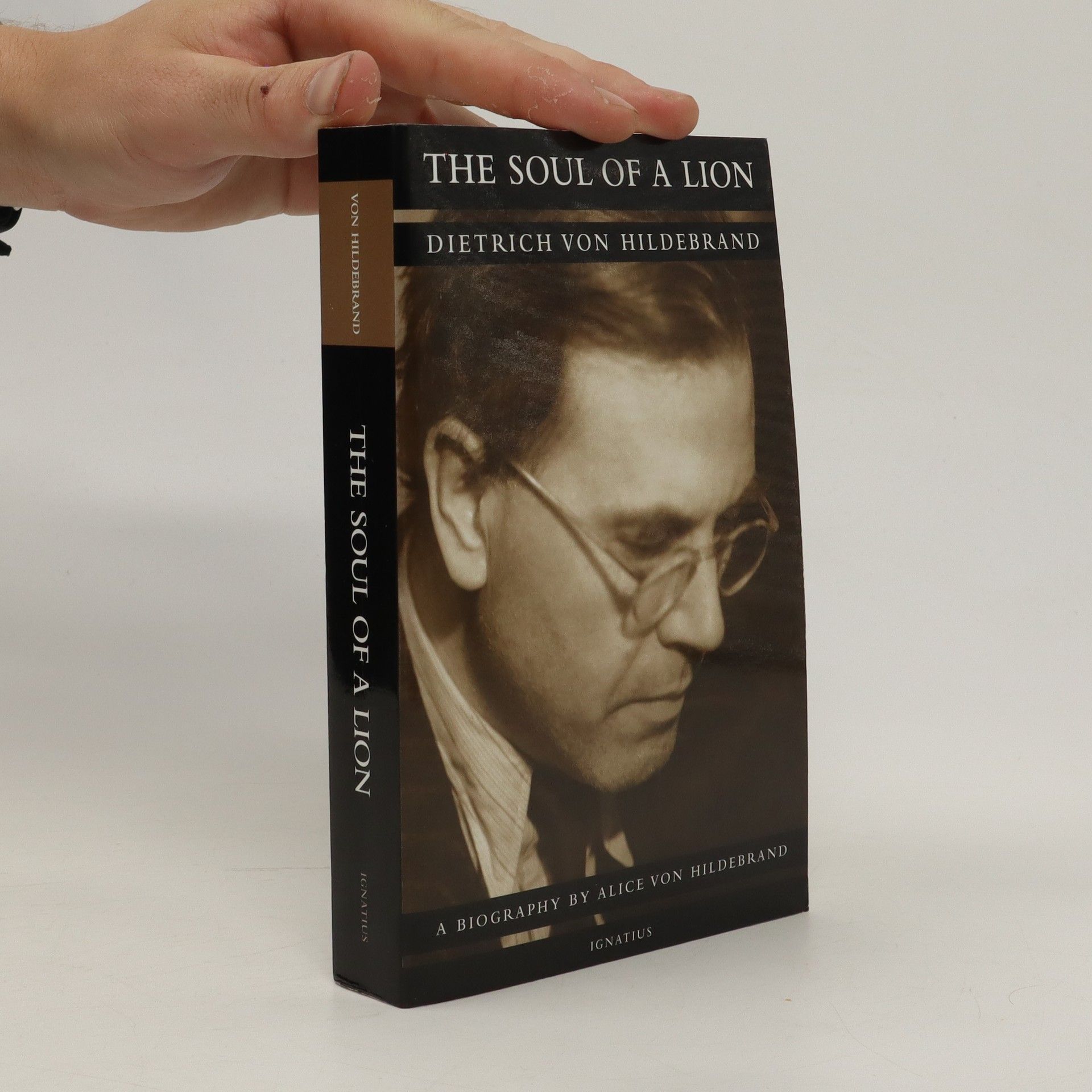Dietrich von Hildebrand, widely regarded as one of the great Catholic philosophers of the 20th century, is well-known for his numerous books, but, until this present work, not much has been known of his remarkable and inspiring life. Written by his wife, Alice, also a highly respected Catholic thinker, this is a fascinating, moving and, at times, gripping account of a truly great man of the Church who suffered much for the faith. Based on a very long "letter" Dietrich wrote to his wife late in his life, it tells his story from his glorious youth with a unique intellectual and cultural formation, his coversion to Catholisism, his great passion for truth and beauty, his extensive writing on Christian philosophy and theology, and his steadfast, determined opposition to Nazism that made him a marked man who miraculously escaped execution. A powerful biography of a relentless fighter against injustice, a devoted son of the Church, a man who had the "soul of a lion". Illustrated.
Alice Von Hildebrand Livres
Alice von Hildebrand est une philosophe et théologienne catholique dont l'œuvre explore l'essence de la féminité et la philosophie de la valeur. Son écriture est profondément enracinée dans la pensée catholique, examinant la beauté et la profondeur de l'existence humaine. Elle invite les lecteurs à contempler les dimensions spirituelles de la vie et la relation entre la foi et la raison.







Women historically have been denigrated as lower than men or viewed as privileged. Dr. Alice von Hildebrand characterizes the difference between such views as based on whether man's vision is secularistic or steeped in the supernatural. She shows that feminism's attempts to gain equality with men by imitation of men is unnatural, foolish, destructive, and self-defeating. The Blessed Mother's role in the Incarnation points to the true privilege of being a woman. Both virginity and maternity meet in Mary who exhibits the feminine gifts of purity, receptivity to God's word, and life-giving nurturance at their highest.
The Dark Night of the Body
- 119pages
- 5 heures de lecture
Memoirs of a Happy Failure
- 200pages
- 7 heures de lecture
Alice von Hildebrand is a household name to many who know her from her countless EWTN appearances, her books, and her extensive articles and essays. What is little known is the story of her life, notably the thirty-seven years she spent at Hunter College in New York City. There, despite systematic opposition she left a mark on a generation of students through her defense of truth with reason, wit, and love. By showing her students how truth fulfills the deepest longings of the heart, she liberated countless students from the oppressive relativism of the day, enabling many of them to find their way to God. Now, for the first time, discover the details of Alice von Hildebrand's life as a "Happy Failure," including: · her thrilling escape from Europe that was nearly halted by a Nazi sub · her early days in America and her dedication to education and cultivating wisdom · her marriage to the great philosopher Dietrich von Hildebrand, · her victories and defeats at Hunter where she combated a culture of relativism · and much more... Memoirs of a Happy Failure is a fascinating and essential glimpse into the life of one of contemporary Catholicism's most compelling minds. It is the story of courage, faith, and the grace of God acting in the world.
Privilégium byť ženou
- 144pages
- 6 heures de lecture
Ďalšou, pre túto dobu aktuálnou publikáciou z dielne Redemptoristov, je kniha Privilégium byť ženou. Autorkou je vysoko uznávaná profesorka a spisovateľka Alice von Hildebrand. Pred pár desaťročiami by sme asi túto knihu pokladali pre našu kultúrnu oblasť za zbytočnú. Úcta k žene, osobitne k materstvu, bola v nás akosi prirodzene zakorenená. A v postave Panny Márie sme vnímali, ako je žena každá, nielen Bohorodička privilegovaná mať mimoriadnu účasť na Božom diele. Dnes potrebujeme, aby nám niekto pripomenul, kto je žena. Alice von Hildebrandová sa tejto úlohy zhostila veľmi dobre. Jej dielo má mimoriadne široký záber cez filozofiu, teológiu, psychológiu nám približuje dôstojnosť, ktorú Boh vložil do každej ženy. Zvlášť zhrnutie významu slabostí a pocitov v živote ženy môže každého čitateľa povzbudiť k ich pozitívnemu prijatiu a využitiu pre vlastný rast ľudský, intelektuálny, no najmä duchovný. Na prelome storočí ponúkla Francúzska akadémia vied cenu človekovi, ktorý najlepšie odpovie na nasledujúcu otázku: Prečo je vo väzniciach viac mužov ako žien? Ocenenie dostal človek, ktorý napísal: Pretože v kostoloch je viac žien ako mužov.
Dietrich von Hildebrand: Duše lva
- 264pages
- 10 heures de lecture
Dietrich von Hildebrand, všeobecně považovaný za jednoho z největších katolických filozofů 20. století, je známý díky svým četným knihám, ale až do této práce se o jeho pozoruhodném a inspirativním životě mnoho nevědělo. Kniha, kterou napsala jeho manželka Alice, rovněž velmi uznávaná katolická myslitelka, je fascinujícím, dojemným a místy strhujícím vyprávěním o skutečně velkém muži církve, který pro víru mnoho vytrpěl. Vychází z velmi dlouhého „dopisu“, který Dietrich napsal své ženě na sklonku svého života, a vypráví jeho příběh od slavného mládí s jedinečnou intelektuální a kulturní formací, přes konverzi ke katolicismu, jeho velkou vášeň pro pravdu a krásu, rozsáhlé spisy o křesťanské filozofii a teologii až po jeho neochvějný a rozhodný odpor k nacismu, díky němuž se stal výraznou osobností, která zázrakem unikla popravě. Silný životopis neúnavného bojovníka proti bezpráví, oddaného syna církve, muže, který měl „duši lva“.
Dietrich von Hildebrand ist einer der großen katholischen Philosophen des 20. Jahrhunderts und wird für seine zahlreichen Publikationen geschätzt. Bis zu dieser nun vorliegenden Biographie von seiner Frau Alice war jedoch nur wenig über sein bemerkenswertes und inspirierendes Leben bekannt. Alice von Hildebrand, selbst eine hochangesehene katholische Denkerin, erzählt in dieser Biographie von dem faszinierenden, bewegten und spannenden Leben eines wahrhaft bedeutenden Mannes der Kirche, der für seinen Glauben viel Leid in Kauf nehmen musste. Basierend auf einem sehr langen Brief, den Dietrich seiner Frau Alice in fortgeschrittenem Lebensalter schrieb, erzählt das Buch seine Lebensgeschichte – von der einzigartigen intellektuellen und kulturellen Bildung in seiner Jugend, seiner Konversion zum Katholizismus, seiner großen Leidenschaft für die Wahrheit und Schönheit, seinen umfassenden Schriften zur Philosophie und Theologie bis zu der Zeit seines Widerstands gegenüber den Nazis, die aus ihm einen stigmatisierten Mann machten und ihn zwangen, in die Vereinigten Staaten von Amerika zu fliehen. Eine packende Biographie eines furchtlosen Kämpfers gegen die Ungerechtigkeit, eines überzeugten Sohnes der Kirche, eines Mannes mit der „Seele eines Löwen“. Mit einem Vorwort von Joseph Kardinal Ratzinger